New elements of Google local search results in Europe: A visual glossary
Google has created new search features for the 27-country European Economic Area. Here's what they look like.

We wanted to better understand Google's DMA compliance so we conducted a search-user study in Ireland in February 2024. We've subsequently conducted additional research in the Hotel and Home Services verticals.
Google began its efforts to comply with the EU's Digital Markets Act (DMA) earlier this year, along with five other original gatekeepers (Amazon, Apple, ByteDance, Meta, and Microsoft). Booking has since been designated as an additional gatekeeper.
Article 6(5) of the DMA mandates that gatekeepers not give preferential treatment to their own products or services vs. third party competitors. Google has thus created a modified search results page and new search features for the 27-country European Economic Area across several verticals: Local, Travel, Products and Jobs.
To illustrate the changes, here's a side-by-side comparison for the same local query – "restaurants open now Dublin" – across the EU, UK, and the US. (Screenshot captured in February 2024.)
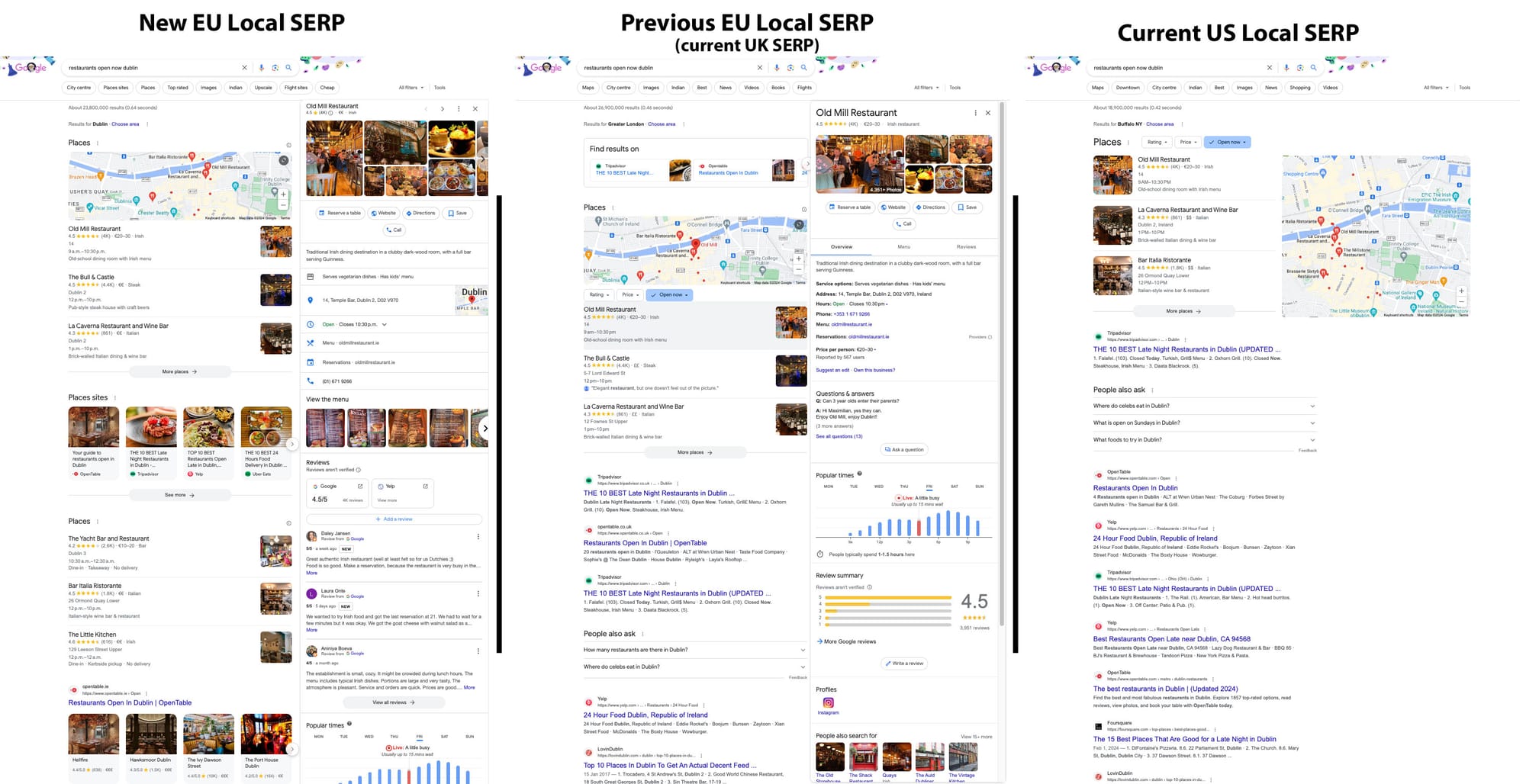
Google defines the elements of the new search features and how to participate in a developer document: New Search experiences in EEA: Rich results, aggregator units, and refinement chips.
We also attempt to define additional elements and result types in present in a typical European local search engine results page (SERP) below.
High level-overview of each result element
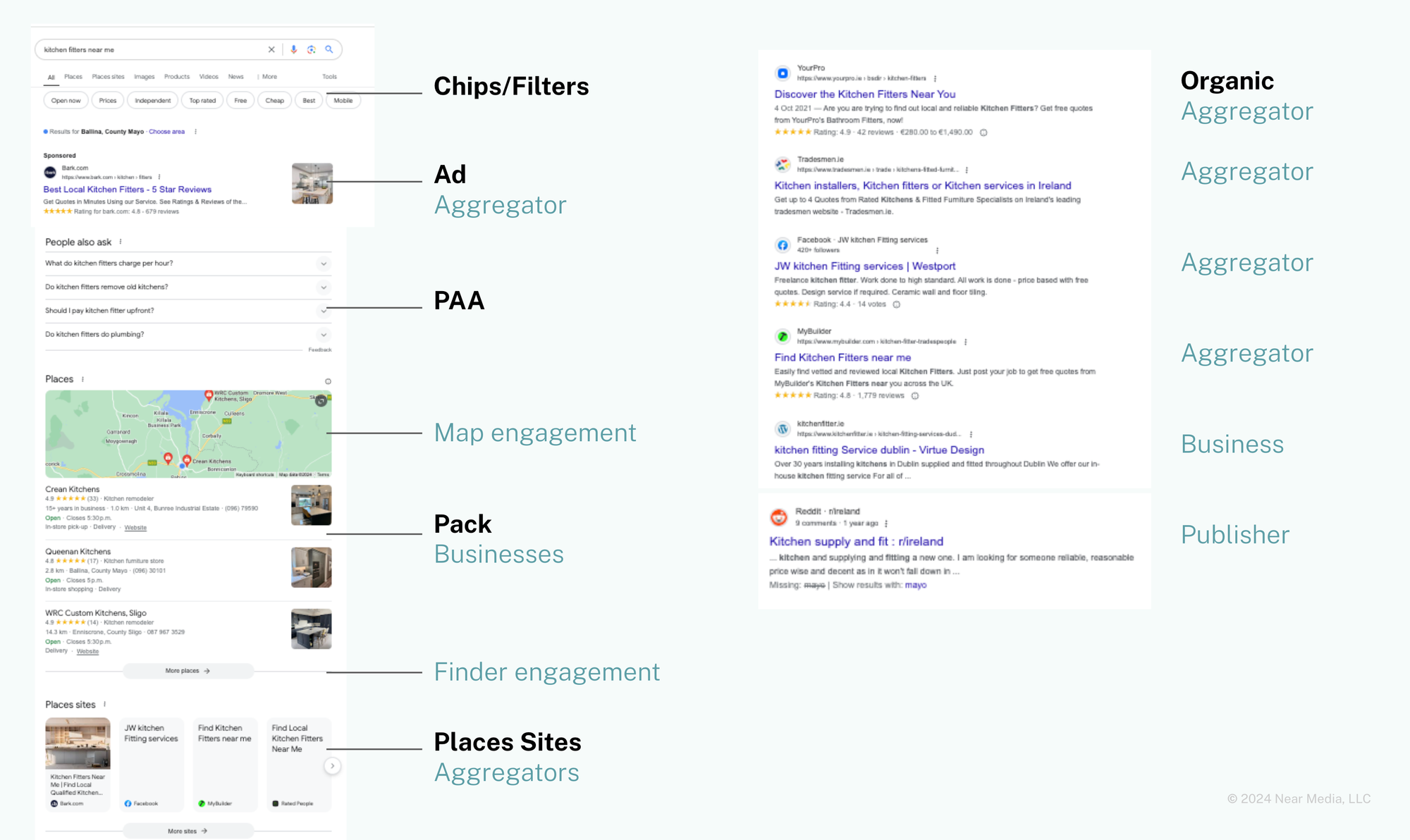
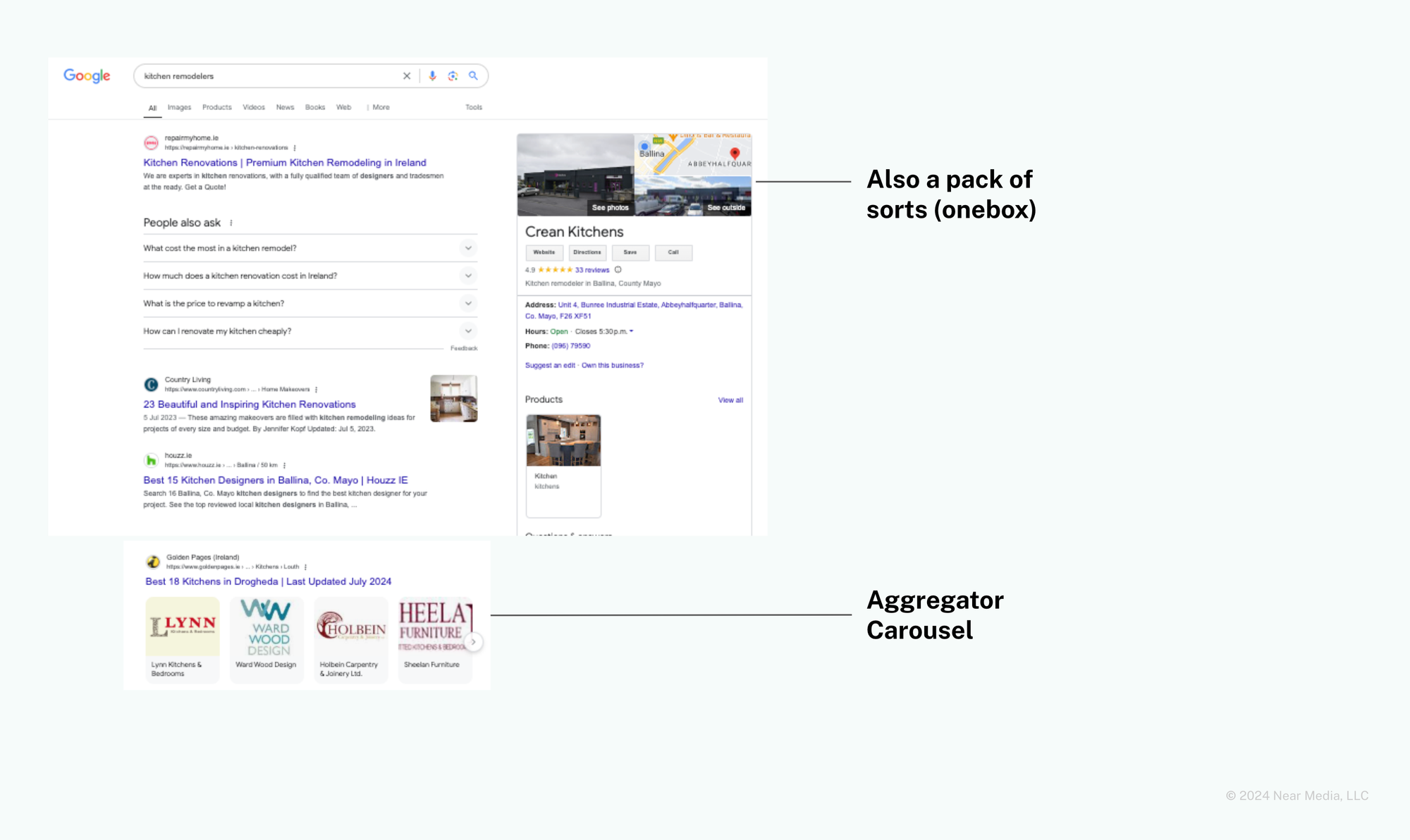
Visual examples of each module

Refinement Chips/Filters
The Places Sites Refinement Chip, part of the auto-generated tabs at the top of the search results, takes you to an organic page of local aggregator results when selected.
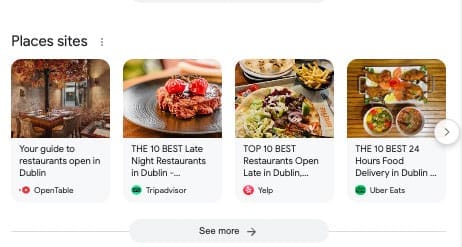
Places Sites Aggregator Unit
A carousel of local aggregator sites that is placed in local search results. Placement varies, but is frequently either just above or just below the Local Pack.
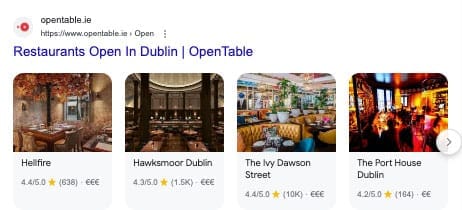
Aggregator Carousel Rich Result
Usually appears within the organic results below the Local Pack and highlights multiple business profiles from one aggregator. It can, if the aggregator is ranked strongly enough, appear higher in the results.
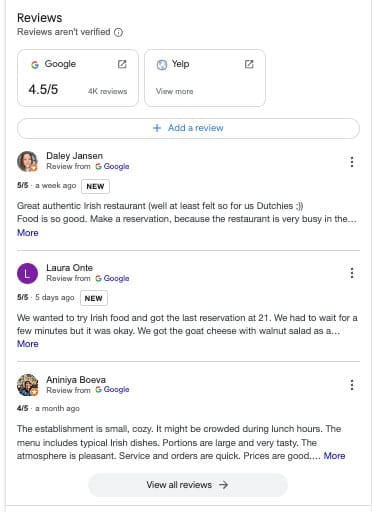
Business Profile Multi-directory Review Summary
The multi-directory review summary appears in the default view of the Business Profile when selected from the pack. When you select the Google review stars in a Profile result it will perform a "brand name + reviews" search that shows in the main search results.
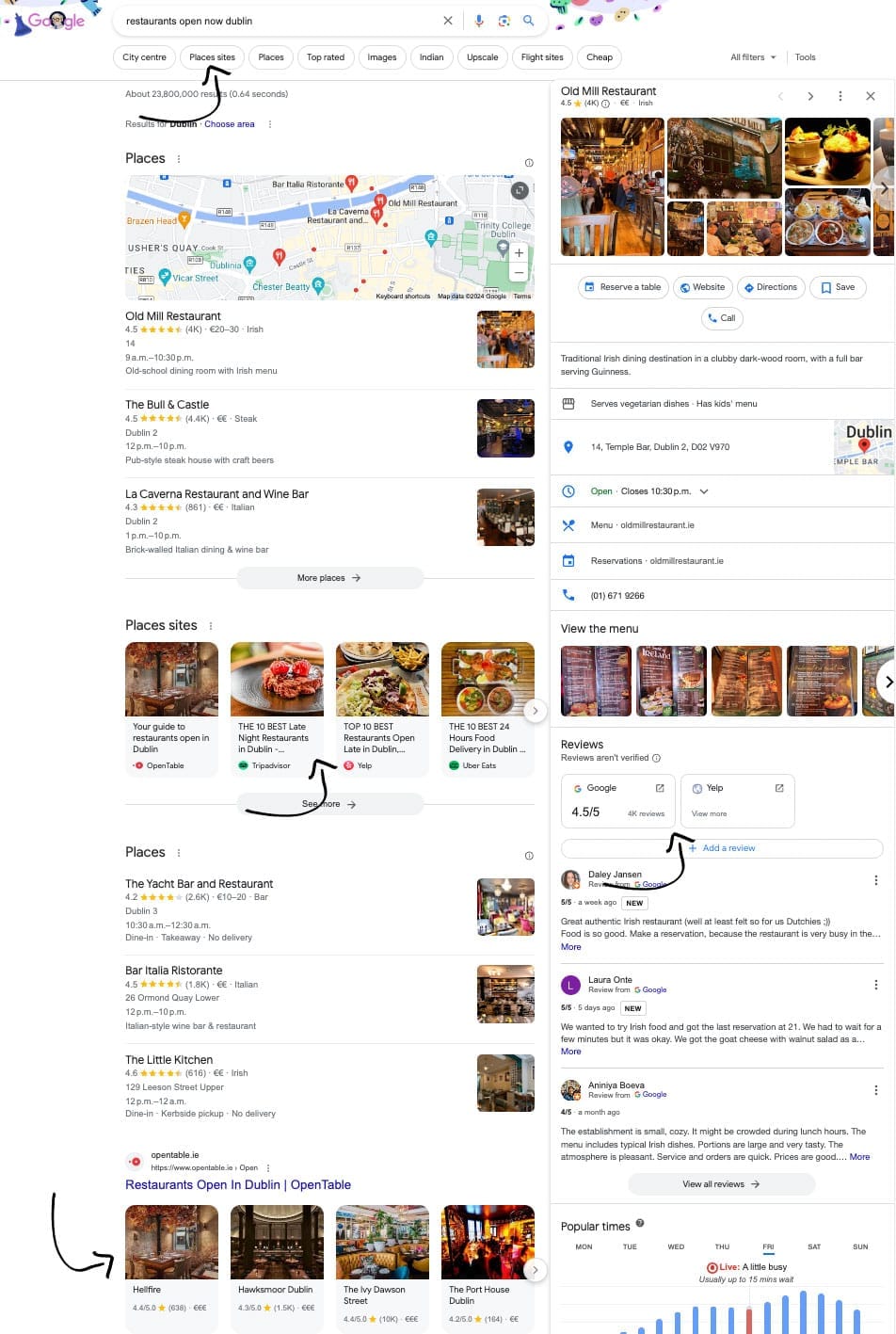
Typical European Local Search Result
Here is a screen shot that shows each of the above elements in context. One surprising element in these new results is a second Google Local Pack so high in the results.
Elements common to Google SERPs across the globe
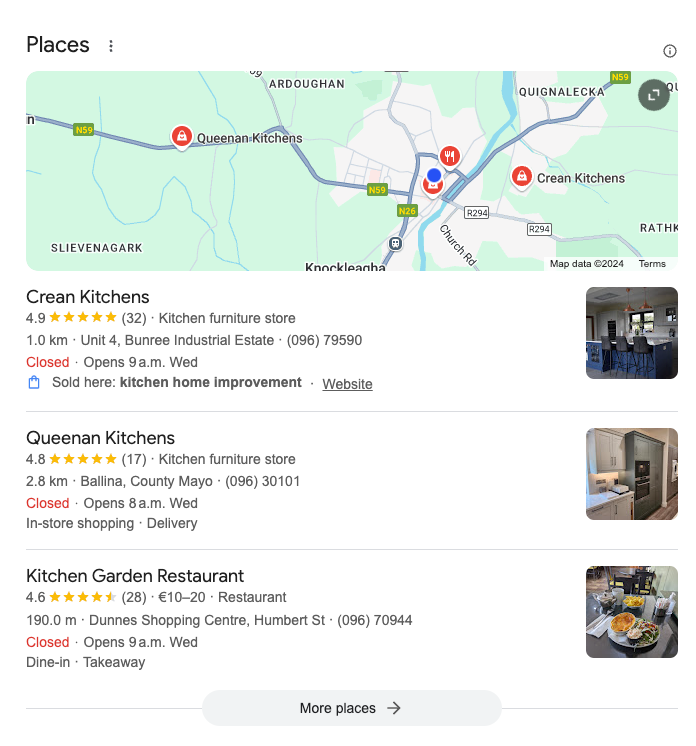
Local Pack / Local Finder / Hotel Finder
A module typically consisting of three Google Business Profiles (GBPs) below or alongside a Google Map. Clicking More Places or More Businesses at the bottom of the Pack takes a user into the Local Finder (Hotel Finder for hotel searches), featuring Google Business Profiles exclusively.

Local Onebox Result
A single Google Business Profile, usually appearing for a brand query specific to that business. Shows up in the righthand rail of desktop results and above organic results on mobile devices.
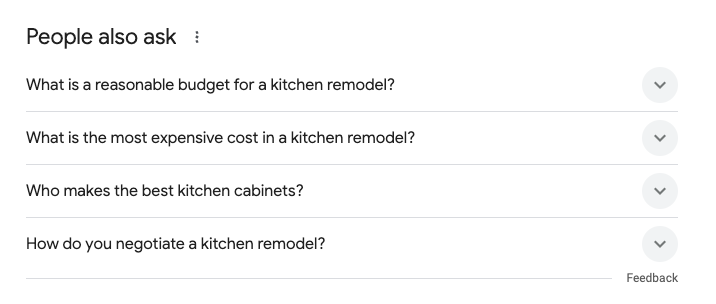
People Also Ask (PAA)
An accordion-style module within Google search results that presents an algorithmically-generated list of questions related to the user's original query. It's designed to anticipate potential questions that users might have and presents answers driven by single-website snippets directly within the search results.


Organic Results
Unpaid webpage listings ranked by Google’s traditional quality algorithm.

Traditional Ads
Google’s classic text-driven, auction-determined promotions shown most commonly at the top of a given search result.
Additional glossary terms
Also part of this process the commission uses a number of terms that are not necessarily familiar to marketers in the US.
Aggregator
A centralized web property built upon structured information about many hundreds or thousands of businesses in a given consumer category or categories. Aggregators typically monetize by charging businesses for placement or enhanced listings, or by facilitating bookings. Also commonly referred to as a “directory” in the United States.
Supplier (Business)
A business which delivers a product or service directly to end-consumers.
Publisher
A web property primarily consisting of unstructured content monetized by subscription revenue or advertising revenue based on the number of impressions driven.
Digital Markets Act Implications
The DMA is seeking to restrain the self-promotional impulses of gatekeepers and improve competition. In Google's case, the there are two questions:
- Do any of the new search features actually impact user behavior? (The EU's compliance determination may hinge on whether they do.)
- Is Google's effort in good faith or merely performative? Or perhaps are they even intentionally attempting to subvert the intent of the DMA?
To get some real data, we've conducted a user study of restaurant search behavior in Ireland, another of hotel search behavior in Germany, France, and Spain, and a third of home services search behavior in Ireland, France, and Germany.
